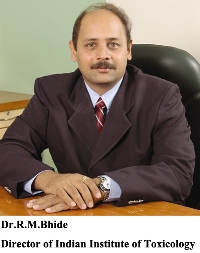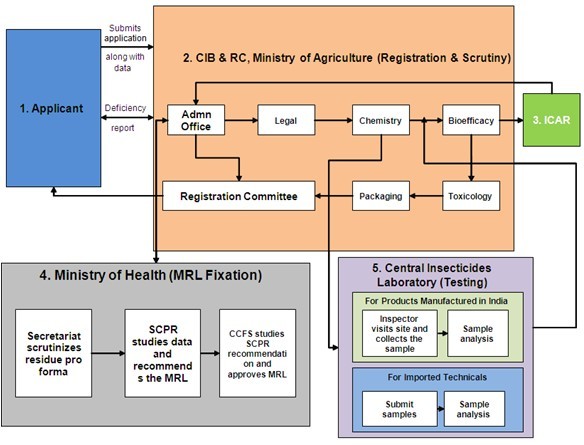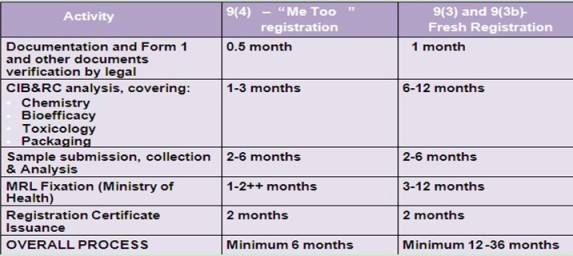Regulatory perspective of agrochemicals in India
 By CnAgri
By CnAgri Print
Print

India is one of the most dynamic generic pesticide manufacturers in the world with more than 60 technical grade pesticides being manufactured indigenously by 125 producers consisting of large and medium scale enterprises (including about 10 multinational companies) and more than 500 pesticide formulators spread over the country. India ranked 4th largest producer of agrochemicals after USA, Japan and China. The percentage share of the pesticides in the growth of exports is around 20.48% per annum and contributes a major exportsto USA, UK, France, etc. The Indian government allows 100% FDI in the chemicals sector and offer waiver of licenses for production of most of the pesticides. Only a few hazardous chemicals need licenses for production. Now India is self-sufficient in pesticide production, importing less than 10 percent of the technical materials needed. An IPM strategy group has also been formed to develop less toxic alternatives to pesticides.
The Insecticides Act, 1968 and Insecticides Rules, 1971 regulate the import, registration process, manufacture, sale, transport, distribution and use of insecticides (pesticides) with a view to prevent risk to human beings or animals and for all connected matters, throughout India.However, recently the Union Cabinet gave its approval for the introduction of the Pesticides Management Bill with the aims of improving the quality of pesticides available to Indian farmers and introducing new, safe and efficacious pesticides. This bill will replace the existing Insecticide Act 1968.The pesticides’ regulations in India are governed by two different bodies: the Central Insecticides Board andRegistration Committee (CIBRC) and the Food Safety and Standards Authority of India (FSSAI). CIBRC was established in 1968 under the Department of Agriculture and Co-operation of Ministry of Agriculture. It is responsible for advising central and state governments on technical issues related to manufacture, use and safety issues related to pesticides. Its responsibilities also include recommending uses of various types of thepesticides depending on their toxicity and suitability, determining the shelf life of pesticides and recommendinga minimum gap between the pesticide applications and harvesting of the crops. The other part of the CIBRC, the registration committee, is responsible for registering pesticides after verifying the claimsof the manufacturer or importer related to the efficacy and safety of the pesticides.
The procedures for registering pesticides in India are similar to global system. An application with the relevant data is reviewed by a Technical Advisory Committee; then, regulatory action is recommended.Government pitched for a strong GLP base in the country by increasing the number of GLP compliant test facilities, a move that could boost trade in agrochemical sectors. Last year, India has been accorded full adherent status for Mutual Acceptance of Data (MAD) by the OECD council. The typical steps in product registration in India are as follows:
The technical grade products registration can be obtained in three ways:
• Provisional Registration u/s 9(3b)
– For the new molecule introduced first time in India. Usually granted for a period of 2 years
• Regular Registration u/s 9(3)
– Subject to the submission of complete data
• "Me-Too” Registration u/s 9(4)
– After 9(3) registration of a molecule, any other person can apply for registration
Registration of agrochemicals is handled at central Government level whereas issues regarding implementation of the Act including manufacturing license is done at the state level. Registration is a multidisciplinary endeavor cover following schedule:
An application for the technical import requires data on physical-chemistry, ecotoxicological, toxicological studies:
In case of u/s 9(3) submissions, samples of std. impurities are also to be provided for chemical verification.




